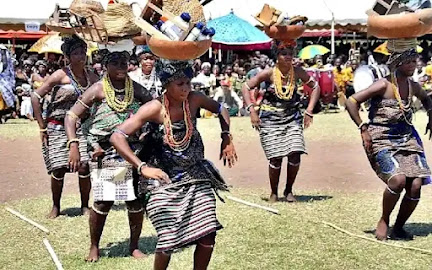 |
| Honoring Tradition: The big festivals in Ghana. |
Travellers are very interested in the festivals in Ghana. And
the massive number of regional festivals that take place all around Ghana each
year should be at the top of your bucket list since they are a distinctive
aspect of Ghanaian civilization.
Few visitors are likely to plan their trips so that they coincide with a specific festival, but it is still important to be aware of any festival that will be taking place while you are in Ghana and to make an effort to be there when they happen.
This is especially important to do during
the most significant festivals because accommodations may be scarce in some
areas. This article will highlight eight (8) of the big festivals in Ghana, and
they are as follows:
Aboakyir
If you are travelling to Ghana in the first few days of the month
of May, make an effort to be at Winneba on May's first weekend in time for the
legendary Aboakyir hunting festival, which dates back 300 years.
The deer (or, more precisely, antelope) hunt, in which the town's
two oldest asafo groups fight to track down and catch a bushbuck using only
their bare hands.
Homowo
The majority of other celebrations in Ghana's coastal regions happen in the fall. Homowo, which literally translates to "hooting at hunger," is the most significant yearly event in the Greater Accra Region.
It is observed in the capital as well as in neighbouring Ga towns like Prampram. It occurs in August and September, when fish and grain are often harvested in their greatest quantities.
In the same months, the Northern
Region, which is focused in Tamale, has a celebration similar to this one under
the name Damba. They (Damba and Homowo) are two of the biggest harvest theme
festivals in Ghana, within that period.
Oguaa Fetu
Afahye
On the first Saturday in September, when local chiefs and asafo
companies lead processions through the streets of Cape Coast, the vibrant Oguaa
Fetu Afahye—the last word of which literally means "adorning of new
clothes"—is the most significant festival in the Fante calendar and one of
the best well celebrated festivals in Ghana.
Bontungu
The Bontungu festival, which lasts for five days in August and
include a variety of drumming and dance rites, is the principal celebration of
Anomabu. Its purpose is to invoke the blessing of God in the next year.
Bakatue
The Bakatue Festival is held in Elmina on the first Tuesday of
July, which marks the start of a new fishing season, a little bit earlier in
the year.
This celebration, which is one of the oldest in Ghana and is distinguished by a variety of processions and contests, is supposed to have existed 500 years before the Portuguese arrived in Elmina.
Hogbetsotso, also known as the "Exodus" Festival, which is held in Anloga, close to Keta, on the first Saturday of each month, commemorates the Ewe people's flight from a despotic king (Togbe Agokorli) in what is now Togo.
It is distinguished by processions of chiefs who wear
traditional attire as well as raucous drumming and dance.
Later in November, dance, drumming and bright costumes are
features of the Agumatsa Waterfall Festival in the Wli traditional territory;
one of the colorful festivals in Ghana.
Odwira
Odwira, a week-long celebration that culminates on Friday with a
parade through the town to the palace, is the most significant yearly event in
Ashanti.
The ninth adae of the calendar, which occurs in September, is when the Odwira often takes place.
The festivities in Kumasi, Akwapim, Akrapong, Akuapem, and Akwamu are among the most boisterous.
Akwasidae
The Akwasidae celebration, which is twice hosted in Kumasi's Manhyia Palace during each of the nine 42-day cycles (or adae) that make up their yearly calendar, is more commonly held.
Since they vary from year to year, it is impossible to offer specific dates, but generally speaking, the festival days happen on every sixth Sunday, followed by the 17th day, which is always a Wednesday.
The Asantehene (king) holds court before his people
and numerous minor chiefs during this vibrant climax of the Ashanti calendar,
which is accompanied by dramatic drumming and horns.
Also Read:
Odwira festival of the people of Fanteakwa District.
Odwira festival of the people of Fanteakwa District. The leaders and people of Ghana's Eastern Region, namely the people of Fanteakwa District …
Read moreSource: HR Forum News





.jpeg)


0 Comments